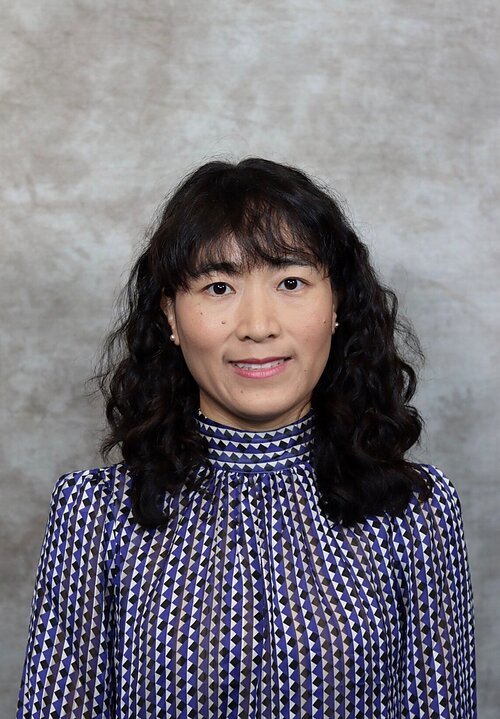Refugee Health Collaborative: Local organizations unite to reach underserved populations
Originally posted on InputFortWayne.com | BAILEY GERBER | FRIDAY, APRIL 5, 2024
Fort Wayne’s Burmese population is estimated at 25,000 people. Many of them come to the United States having spent months—or even years—in refugee camps. They often speak no English, some may not even be literate in their own language, and rarely have access to people who can understand them, translate for them, and advocate for them.
Upon arrival in the United States, many refugees have no idea where to begin when it comes to healthcare, nutrition, counseling, and other basic services English-speaking residents might take for granted. Fort Wayne’s Refugee Health Collaborative was born from the need to provide wraparound care for Burmese refugees and offer a bridge between multiple services and touchpoints. At the end of 2023, the Refugee Health Collaborative was awarded a $1 million grant for its continued development in the community.

Eliminating barriers to care and services
The Refugee Health Collaborative is an initiative facilitated by the St. Joseph Community Health Foundation. Participating organizations and programming include:
- Catholic Charities of the Diocese of Fort Wayne-South Bend, serving as the primary touchpoint for initial case management
- IU Health Primary Care Medical Office on Pettit Avenue, where refugees can receive care from Dr. Cho Mar Aung, a former Burmese refugee
- Amani Family Services, providing mental health resources and extended case management
- International House, transporting, accompanying, and advocating for refugees in their appointments
- Double Up Indiana Program, offering culturally competent, affordable fruits and vegetables for refugees who use their SNAP/EBT cards.
“This is such an exciting opportunity to serve the refugee population in Fort Wayne,” says Dr. Matt Sutter, chief medical officer at IU Health. “We know resettling in a new country comes with a lot of challenges, and physicians can only do so much—which is why providing wraparound services is really important. The St. Joseph Community Health Foundation has done a great job with bringing partners together, so we didn’t have to bring in any organizations from outside this Fort Wayne community.”
At an event on March 14, members of the Collaborative gathered at the Allen County Public Library, along with several representatives of IU Health, to share how the grant funds will be used to serve Burmese refugees.
“Fort Wayne is one of the largest resettlement areas for Burmese refugees,” says Nyein Chan, director of resettlement at Catholic Charities. Chan has come full circle in his career after being resettled by Catholic Charities when he came to the United States as a refugee in 1994.

“I had such a small grasp of the English language when I first arrived here, and all I wanted was to speak to someone in my own language,” says Chan. “Today, because of our partnership with Dr. Cho Mar Aung, we can provide refugees with access to a medical professional who can communicate with them in their language and relate to their experience.”
Like Chan, Dr. Aung came to the United States as a refugee—and Chan was the one who helped her settle in Fort Wayne.
“I remember when Catholic Charities helped resettle Dr. Aung, she told me that her dream was to go to medical school and then come back to Fort Wayne to serve and give back to other refugees,” says Chan. “That’s exactly what she’s doing. Now, when Burmese refugees come to Fort Wayne, we can address the language and culture barrier by connecting them to Dr. Aung. Refugees are so excited to meet with Dr. Aung and speak with someone who knows their own language.”
When refugees come to Fort Wayne, Catholic Charities is often the first organization to interact with them, help them find housing and employment, enroll children in schools, and more. Through their initial case management services, they can connect Burmese refugees to other members of the Refugee Health Collaborative to ensure they have access to counseling, healthy food, transportation, and other key services that help them adapt to a new country and culture.
“At Catholic Charities we understand the way to move the needle on healthcare, poverty, and housing is to leverage partnerships with other organizations in our community,” says Matt Smith, chief development officer at Catholic Charities. “We’re so thankful to the IU Health system for supporting that vision—and to the St. Joseph Community Health Foundation for being the connector that brings all these partners together.”
Part of the funding from the IU Health grant will go toward establishing a new position at Catholic Charities, called a “health navigator.” Ideally, this person will be fluent in both Burmese and English and will be responsible for assessing basic needs and providing referrals to partner agencies and other resources within the Refugee Health Collaborative.

“The health navigator will be able to assist Burmese refugees with applying for food assistance like SNAP and WIC, Medicaid, Social Security and more—things that are often inaccessible because the paperwork is in English,” says Tiffany Goble, north and east region director of operations for Catholic Charities. “I think we are really blessed in this community to have all these organizations who want to be partners and work together. No one agency can do it all, and this collaboration is going to help us meet the needs of so many more refugees than we’d be able to serve alone.”
Offering whole-person care and support
Amani Family Services provides the mental health expertise and resources for the Refugee Health Collaborative. Amani’s CEO is Ewelina Connolly, a licensed mental health counselor and Polish immigrant. Her intersecting experiences have taught her the importance of providing culturally competent services for refugees settling in Fort Wayne.
“In my practice as a therapist, I’ve had the privilege of working with individuals from diverse backgrounds, many of whom are refugees and immigrants facing the daunting task of navigating their new lives,” says Connolly. “Understanding and respecting cultural backgrounds of our clients is not just about being polite; it’s about providing effective care. We’re extremely fortunate to work with the only Burmese-speaking therapist in Allen County to better serve refugees who might struggle to find accessible, culturally competent mental health services.”
According to community surveys completed by Amani Family Services, foreign-born individuals are two times less likely than local residents to access healthcare directly from a doctor’s office. This is due to language and cultural barriers– that is what the Refugee Health Collaborative will strive to eliminate. With Dr. Aung offering primary care services in Southeast Fort Wayne, where the Burmese population is high, refugees will have an accessible, culturally competent care provider who can also connect them to other local resources.
“It is very counter-cultural for Burmese refugees to seek out mental health counseling,” says Connolly. “A lot of times, their psychological distress manifests in physical symptoms like headaches, sleeplessness, or body aches—so they go and see a physician to address those things. Because we can work with Dr. Aung and share assessment tools across our Collaborative, we’ll be able to identify individuals in need of a mental health therapist who can help them address the trauma they’ve faced.”

Even though refugees have access to culturally competent care, many of them need transportation or help understanding how to access that care—which is why International House’s involvement in the Refugee Health Collaborative is so important. Volunteers at International Health connect with refugees after Catholic Charities has helped them with resettlement.
“As we build relationships with refugees, we sometimes find that they have the information they need about their appointments, but they’re not sure how they’re going to get there,” says Heather Morris, director of outreach and operations at International House. “We drive them to their appointments, and we often go in to see their doctors with them so we can encourage them to advocate for themselves and ask questions.”
International House also provides in-home visits and in-home tutoring for refugees, which is how volunteers build relationships, learn about family histories, and identify other needs.
“One of our favorite programs is our in-home visits because that’s where we get to know people’s stories,” says Ann Heign, executive director of International House. “When we drop people off after appointments, we get to go in with them, talk to their families, and help them understand their medication or post-appointment instructions. For example, if they see that something needs to be taken twice a day, they might take two pills in the morning, rather than one in the morning and one in the evening.”
Creating a community that’s better together
The leaders of all the organizations involved in the Refugee Health Collaborative have firsthand experience with the daunting number of people who need support as they transition to life in the United States. Working together to combine their diverse services allows them to limit the number of people who might fall through the cracks.

“We are honored to facilitate this coalition, working with IU Health and others to ensure medical care and wraparound services for Burmese nationals,” said Meg Distler, executive director of the St. Joseph Community Health Foundation, when she spoke at the event on March 14. “Like our sponsor, the Poor Handmaids of Jesus Christ, we care deeply for refugees who walk a journey like that of Jesus Christ, who was also a refugee.”
To learn more about the Fort Wayne Health Collaborative and the participating organizations, read the press release on the St. Joseph Community Health Foundation website.
